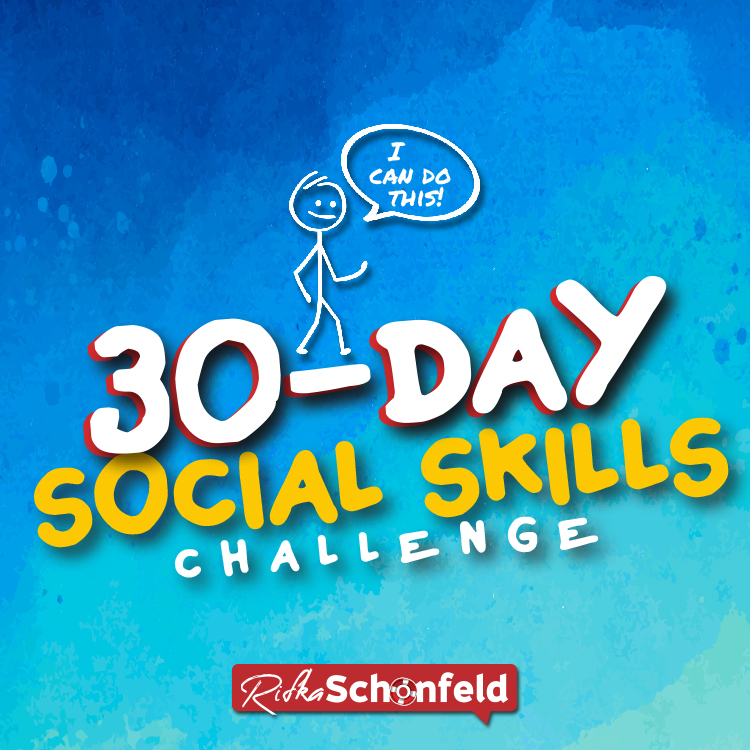Join the Social Skill Challenge!
- rifkaschonfeld
- November 29, 2022
- 0 Comments

Join the Social Skills Challenge
By: Rifka Schonfeld, Director S.O.S (Strategies for Optimum Success)
It’s back to school time, but are we teaching all of the important subjects? Yes, we’ve got a classes for Chumash, Math, Navi, Science, Reading, and many more subjects. Those are incredibly important. We may even have a section for effort and behavior in each of those subjects on the report card. So what are we missing? I’ve written about this before: research has continually proven that social skills are integrally linked to academic success, but it’s more than that. Social skills are necessary for all interactions later in life too! Therefore, there are some seemingly intangible things that fall into categories for which we cannot give tests that are incredibly important to evaluate and improve.
First: what are social skills? And can we really teach them? Before we get to the definition of social skills, it is important for me to emphasize that while of course we could include social skills on report cards, most teachers are not trained to teach or assess these skills. While there is a movement within education to work towards greater integration of social skills into the standard curriculum (Michelle Garcia Winner has done some excellent work on this front through her Social Thinking curriculum), this integration has not yet become mainstream.
According to author and clinical psychologist Dr. Eileen Kennedy-Moore, social skills are “the abilities necessary to get along with others and to create and maintain satisfying relationships.” In my book “Q&A with Rifka Schonfeld: The Answers You Need for a Happier and More Productive Life,” I write about the link between social skills and academics:
When children develop low self-esteem [because of failure in academics or otherwise], they are less likely to attempt to make friends. They believe that no one would be interested in being their friends and therefore think that they will be rejected by their peers. This often leads children with disabilities to isolate themselves in order to avoid risk-taking in social situations.
The same is true in the reverse. Children who struggle with social skills are less likely to participate in class, less likely to ask important questions when they don’t understand something, and more likely to fall between the cracks.
What would a social skills class look like? Ideally, it would be divided into multiple categories as there are, of course, multiple skills. Some of those categories might include:
- Nonverbal Communication. Non-verbal communication such as proper eye contact and tone of voice often are extremely important in creating life-long relationships and friendships because they are an integral part of conflict resolution.
- Resilience and grit. Psychotherapist Linda Graham in her book Resilience: Powerful Practices for Bouncing Back from Disappointment, Difficulty, and Even Disaster, explains what resilience is: “Resilience – the capacity to bend with the wind, go with the flow, bounce back from adversity – has been pondered, studied, and taught in tribes and societies, in philosophical and spiritual traditions, and through literature and academies for eons. It is essential to the survival and thriving of human beings and human societies. We now also know that it is one of the behavioral outcomes of a mature, well-functioning prefrontal cortex in the brain. Whether we’re facing a series of small annoyances or utter disaster, resilience is teachable, learnable, and recoverable.”
- When children speak kindly, politely, and respectfully, they are treated kindly, politely, and respectfully. In addition, their respectful attitude creates an environment of mentschleichkeit and simplicity.
- Personal hygiene. Personal hygiene is an essential social skill. If children do not wash and keep up with the social norms, their peers will likely reject them. Proper hygiene is an easy rule to follow even for a concrete- minded child.
- Positive leadership. Positive leadership is just what it sounds like! It’s when children learn to lead through positive action, without bullying or hurt feelings. Positive leadership allows children to be an integral part of a group in a healthy and cohesive manner.
While many people develop social skills naturally, there are children who need to be explicitly taught. Creating a curriculum around these essential skills can help all students succeed. Another way to explicitly teach younger children is through workbooks and picture books written for this very purpose. That’s why I wrote Social Skills Around the Clock, a colorful comic style book that helps children understand the different skills needed at different times and situations throughout the day. There are also great workbooks for older children available so that they can explicitly practice these social skills.
I have also created a 30-day social skills challenge. This challenge (see a small sample below) dares children and adults to enhance their social skills every day for a month. Hundreds of people have already signed up for the challenge, and I continue to give away the calendars to those who call me. Join the social skills movement today!
An acclaimed educator and social skills specialist, Mrs. Rifka Schonfeld has served the Jewish community for close to thirty years. She founded and directs the widely acclaimed educational program, SOS, servicing all grade levels in secular as well as Hebrew studies. A kriah and reading specialist, she has given dynamic workshops and has set up reading labs in many schools. In addition, she offers evaluations G.E.D. preparation, social skills training and shidduch coaching, focusing on building self-esteem and self-awareness. She can be reached at 718-382-5437 or at rifkaschonfeld@gmail.com. You can view the web at rifkaschonfeld.com.

